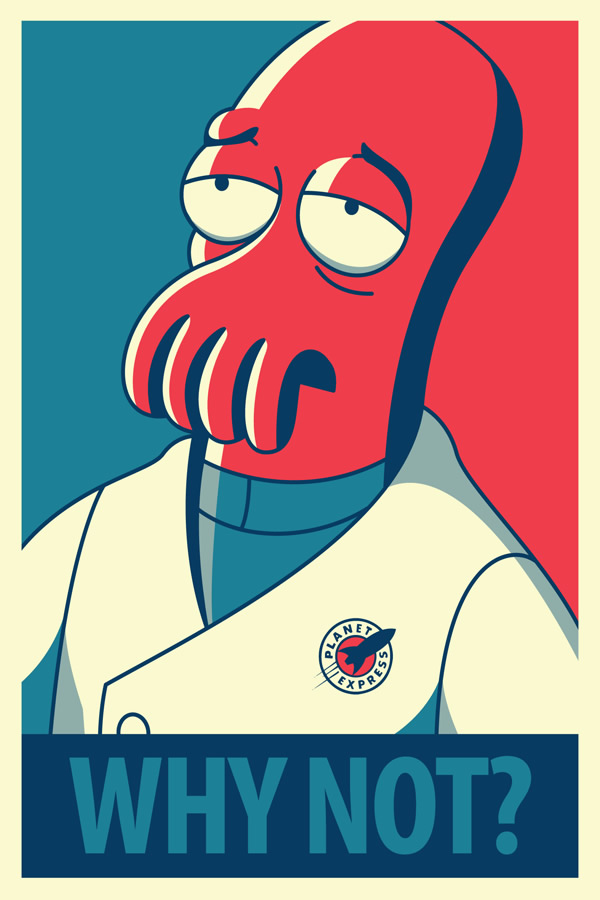Put all your side-effects in command objects, why not?

Zoidberg approves
Introduction
Side-effects generally make writing automatic tests a little bit trickier. TODO.
Proof-of-concept for a design pattern that might or might not be a good idea.
Pros:
- Pure methods, very easy to write unit-tests for
Cons:
- Non-idiomatic
- Hard to compose methods that return side-effects
Implementation
A cronjob that installs your favourite web application.
What’s different from a “normal” code-base?
- A class
SideEffectFactorythat makes side-effect command objects - A class
SideEffectRunnerthat runs those objects
TODO: Fold result from command objects, so that command 2 can use result from command 1. Pipeline pattern.
class AppInstaller
{
/** @var SideEffectFactory */
private $sef;
/**
* @param SideEffectFactory $sef
*/
public function __construct(SideEffectFactory $sef)
{
$this->sef = $sef;
}
/**
* @param InstallationData $data
* @return IOAction[]
*/
public function install(InstallationData $data)
{
/** @var IOAction[] */
$sideEffects = [];
if ($this->folderDoesNotExist()) {
$sideEffects[] = $this->sef->makeFileIOAction(
'unzip app.zip ' . $data->targetFolder,
// Second argument for rollback.
'rm -r ' . $data->targetFolder
);
}
if ($this->databaseDoesNotExist()) {
$sideEffects[] = $this->sef->makeDatabaseIOAction(
'CREATE DATABASE ' . $data->databaseName,
'DROP DATABASE ' . $data->databaseName
);
}
$sideEffects[] = $this->sef->makeNginxIOAction(
'add domain ' . $data->domain,
'remove domain ' . $data->domain
);
return $sideEffects;
}
}
class SideEffectRunner
{
private $fileIO;
private $databaseIO;
private $nginxIO;
// TODO: SideEffectRunner needs ALL IO systems injected?
public function __construct($fileIO, $databaseIO, $nginxIO)
{
$this->fileIO = $fileIO;
$this->databaseIO = $databaseIO;
$this->nginxIO = $nginxIO;
}
/**
* @param IOAction[] $actions
* @return array{$success: bool, $message: string}
*/
public function run(array $actions)
{
$done = [];
try {
foreach ($action => $action) {
$this->runAction($action);
$done[] = $action;
}
} catch (Exception $ex) {
$this->rollback($done);
return [false, $ex->getMessage()];
}
return [true, null];
}
/**
* @param IOAction[] $actions
* @return void
*/
private function rollback(array $actions)
{
// NB: Don't catch exceptions here, because it should be fatal failure.
foreach ($actions as $action) {
$this->rollbackAction($action);
}
}
/**
* @param IOAction $action
* @return void
*/
private function runAction(IOAction $action)
{
if ($action instanceof FileIOAction) {
$action->run($this->fileIO);
} elseif ($action instanceof DatabaseIOAction) {
$action->run($this->databaseIO);
} elseif ($action instanceof NginxIOAction) {
$action->run($this->nginxIO);
}
}
/**
* @param IOAction $action
* @return void
*/
private function rollbackAction(IOAction $action)
{
if ($action instanceof FileIOAction) {
$action->rollback($this->fileIO);
} elseif ($action instanceof DatabaseIOAction) {
$action->rollback($this->databaseIO);
} elseif ($action instanceof NginxIOAction) {
$action->rollback($this->nginxIO);
}
}
}
class InstallController
{
/**
* TODO: Even better, let controller action return command object list and let
* the framework execute them. That way, all controller actions are pure.
*/
public function actionInstall(int $installationId)
{
$connection = new DatabaseConnection();
$fetcher = new InstallationDataFetcher($connection);
$data = $fetcher->fetch($installationId);
$appInstaller = new AppInstaller(
new SideEffectFactory()
);
$effects = $appInstaller->install($data);
// TODO: Need all IO classes?
$runner = new SideEffectRunner(
new FileIO(),
$connection,
new NginxIO()
);
try {
list($success, $message) = $runner->run($effects);
if ($success) {
echo 'All good';
} else {
echo 'Failed and rolled back: ' . $message;
}
} catch (Exception $ex) {
echo 'Rollback failed, please repair manually: ' . $ex->getMessage();
}
}
}
TODO: Multiple database connections?